
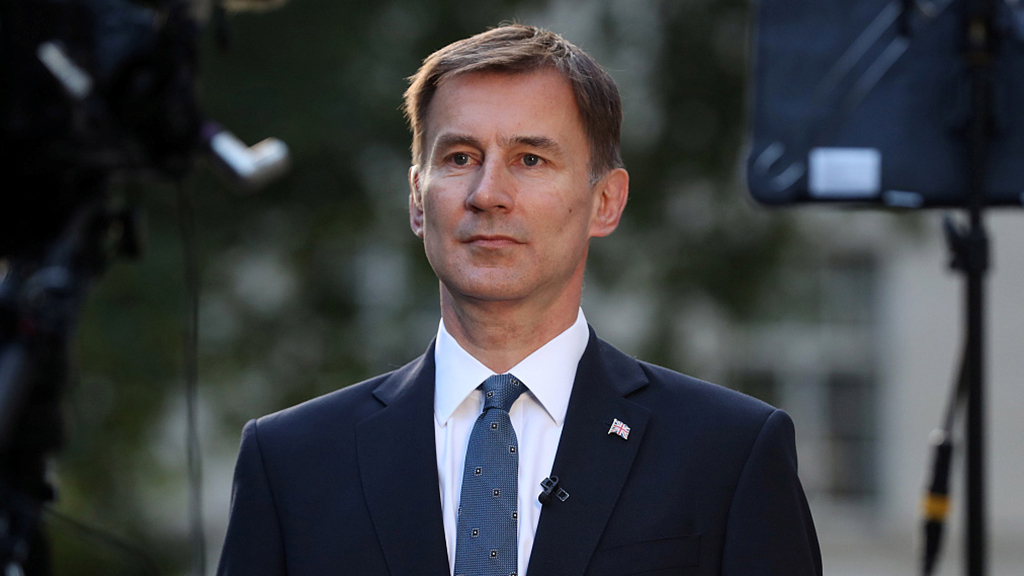
Jeremy Hunt, Britain's foreign secretary, is battling Boris Johnson to secure the votes of Conservative members. The winner of the contest will become party leader and Britain's next prime minister.
PROFILE
Personal
Hunt, the son of a British navy admiral, studied politics, philosophy and economics at Oxford University, where he was a contemporary of both former prime minister David Cameron and leadership rival Johnson.
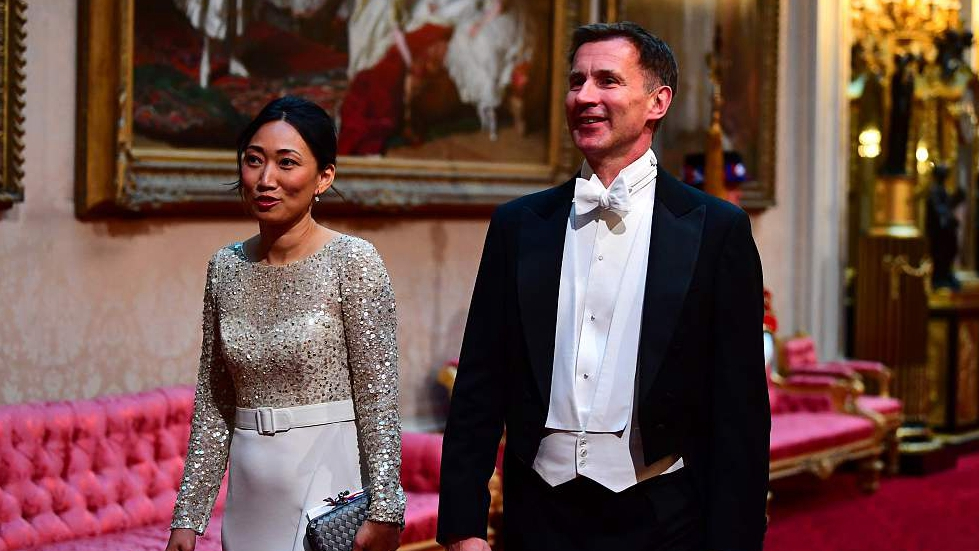
Britain's Foreign Secretary Jeremy Hunt and his wife Lucia Guo arrive for a State Banquet at Buckingham Palace in London, June 3, 2019. /VCG Photo
The 52-year-old enjoyed a fruitful entrepreneurial career before entering politics, a fact he has repeatedly mentioned on the campaign trail. After several failed ventures, including an attempt to sell marmalade in Japan, he set up an education course database which was sold for over 30 million British pounds in 2017. He married Xi'an-born Lucia Guo in 2009, and the couple has three children.
Political
First elected in 2005 when the Conservatives were in opposition, Hunt served as a shadow minister until the party entered government in 2010. He has been at the top table ever since, spending two years in charge of the culture department and then six years at health.
He was promoted to be foreign secretary after Johnson resigned from the job in July 2018.
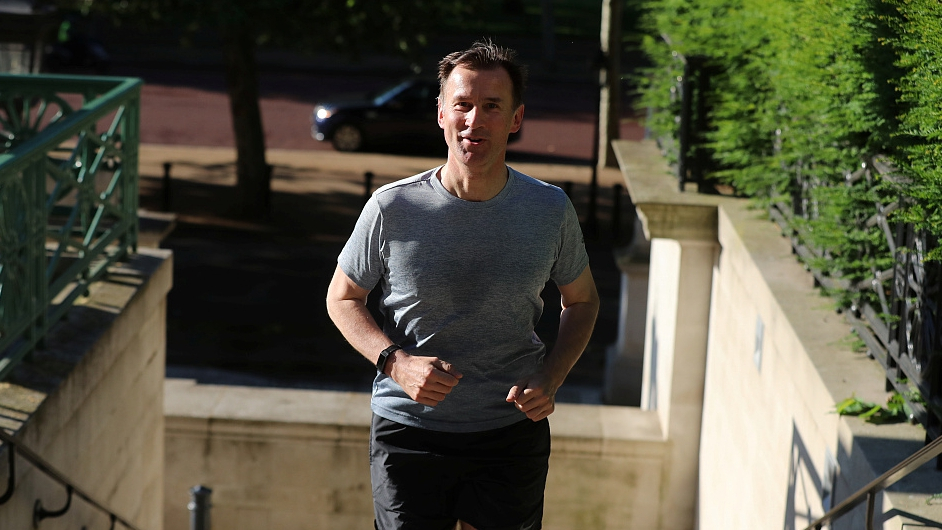
Conservative Party leadership candidate Jeremy Hunt returns after an early morning run in London, June 20, 2019. /VCG Photo
Hunt has established a reputation as a safe pair of hands, despite occasional controversy. His career was in the most jeopardy in 2012, when questions were raised over his conduct in overseeing the proposed takeover of BSkyB by Rupert Murdoch's News Corp. He was later reported to have hidden behind a "large tree" to avoid journalists at a Murdoch event in London.
Brexit plan
Hunt wants Britain to leave the European Union with a renegotiated deal – with changes to the Irish backstop – and would delay departure until after the current deadline of October 31 if agreement was in sight. However, he says he would go ahead with a no-deal exit if there was no realistic prospect of a fresh settlement with Brussels.
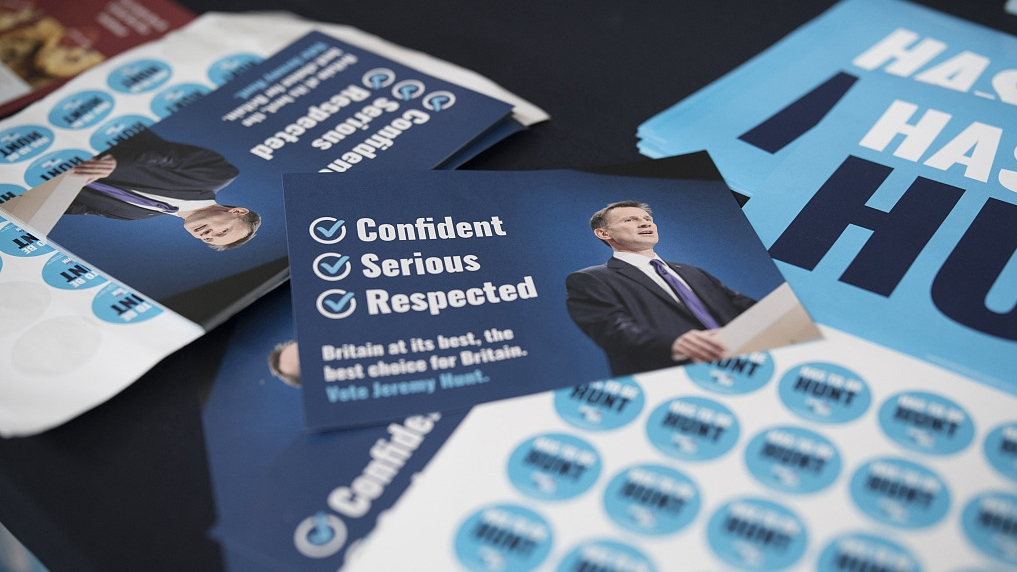
Campaign flyers and stickers for Jeremy Hunt sit on a table ahead of a hustings event in Manchester, June 29, 2019. /VCG Photo
The issue is a major obstacle for Hunt's bid for the top job. He campaigned to stay in the EU in 2016, but the Conservative membership is overwhelmingly in favor of leaving and is wary of his plan.
Read more:
Meet the voters who will pick Britain's next PM
Britain's top diplomat with strong ties to Asia
YouGov polling conducted from June 19-21 indicated that 83 percent of Conservative members wanted to leave the EU on October 31, with a renegotiated deal or without a deal. Only 19 percent believed Hunt would deliver Brexit by the end of October, whereas 90 percent had faith Johnson would do so.
Foreign policy
Hunt has taken a largely conventional foreign policy stance since replacing leadership rival Boris Johnson as the UK's top diplomat, generally remaining low-key despite occasional missteps – including describing his Chinese wife as Japanese on a visit to Beijing.
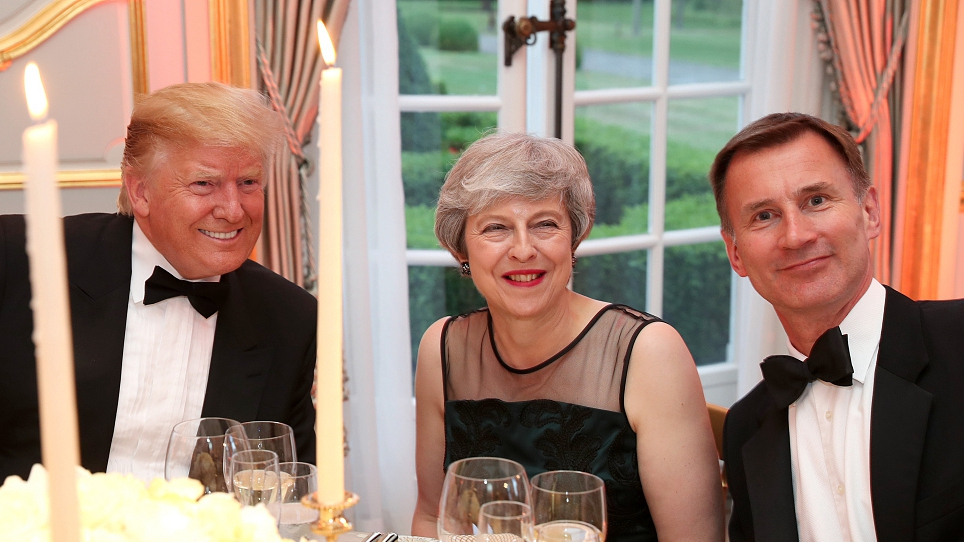
U.S. President Donald Trump, British Prime Minister Theresa May and British Foreign Secretary Jeremy Hunt at a dinner in London, June 4, 2019. /VCG Photo
On taking the job in 2018, he stressed a commitment to a values-based approach, and called for reform of international institutions from the United Nations to the World Trade Organization. He has since maintained support for the Iran nuclear deal, argued in favor of close relations with Saudi Arabia and committed to maintaining Britain's overseas aid budget at a minimum of 0.7 percent of GDP.
Campaign promises
Hunt has made a series of spending promises on the campaign trail, including increasing funding for defense by 15 billion British pounds over the next five years and continuing with major infrastructure projects such as the HS2 high-speed rail line and a third runway at Heathrow airport.
He has also called for more flexibility on immigration, with targets and minimum earning levels scrapped, and committed to a range of business-friendly tax cuts.
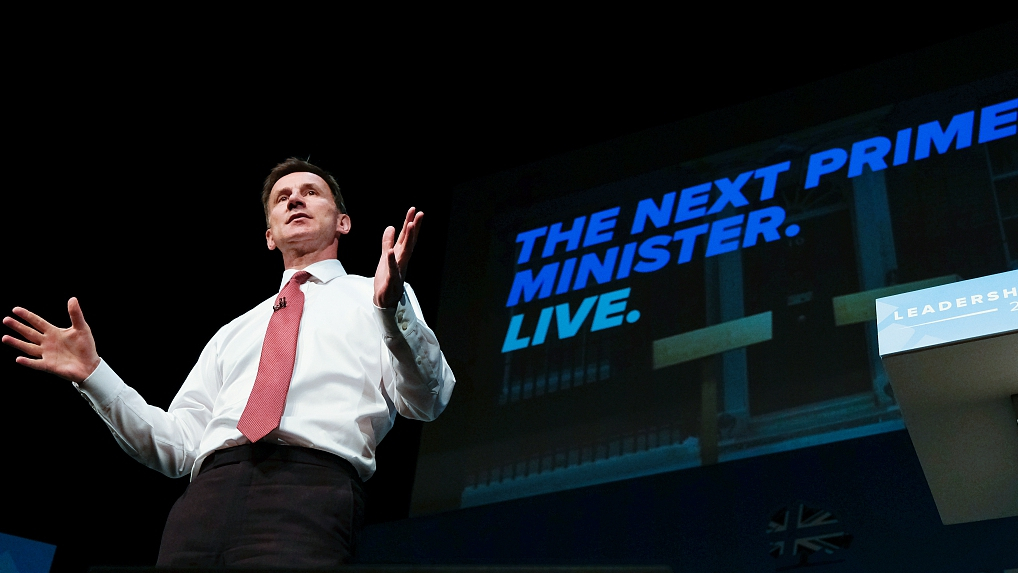
Conservative leadership candidate Jeremy Hunt speaks to party members at a hustings event in Darlington, July 5, 2019. /VCG Photo
Can Hunt win?
Hunt insists his campaign is gaining momentum but accepts the surge may be too little, too late. A YouGov poll of Conservative members conducted from July 1-5 suggested only 26 percent would back the foreign secretary, with just 15 percent open to changing their minds. A July 5 survey by ConservativeHome put him at 29 percent.
The foreign secretary is a more popular choice to be prime minister among the general electorate, polling suggests, but a Hunt victory among Conservatives would be a huge surprise.

Copyright © 2018 CGTN. Beijing ICP prepared NO.16065310-3
Copyright © 2018 CGTN. Beijing ICP prepared NO.16065310-3